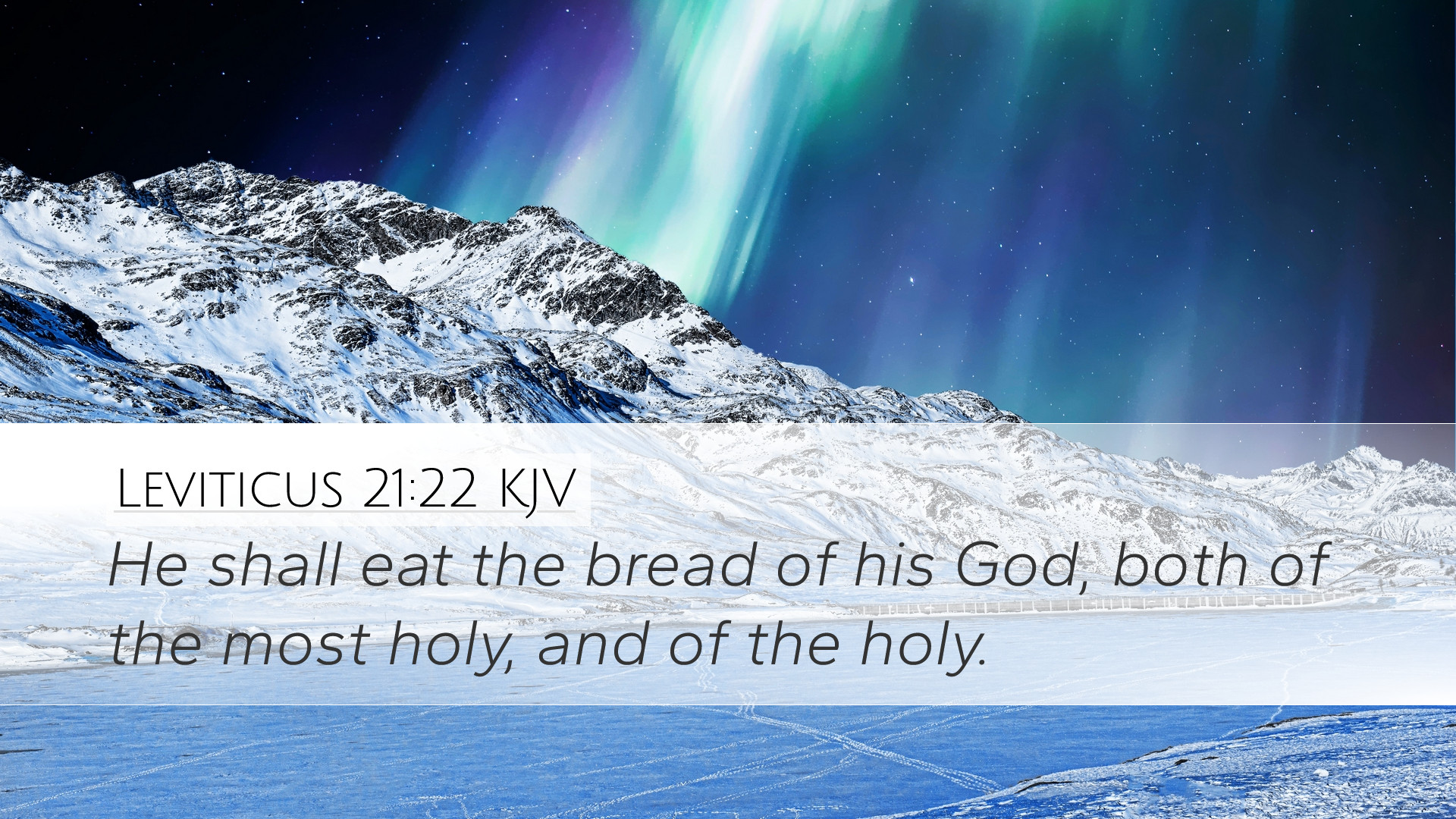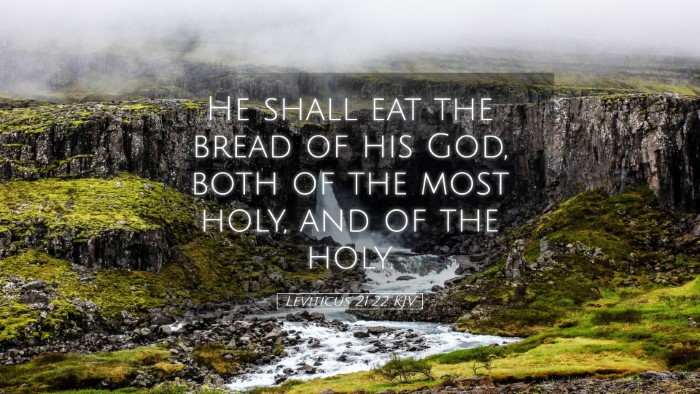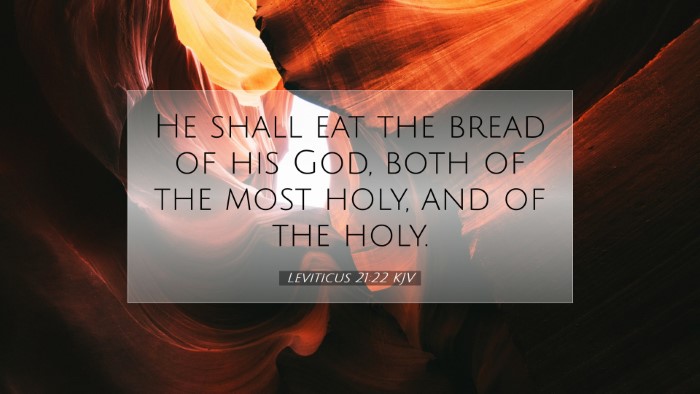Commentary on Leviticus 21:22
Bible Verse: "He may eat the bread of his God, both of the most holy and of the holy." (Leviticus 21:22)
Introduction
The book of Leviticus serves as a manual for the priests and the people concerning holiness, worship, and ritual purity. Leviticus 21 addresses the conduct and qualifications of priests, emphasizing the sacred nature of their service. Verse 22 highlights the privileges afforded to the priests within the context of their holy duties, underscoring the significance of their relationship with God and the sacrificial system.
Context and Analysis
Leviticus 21 outlines strict guidelines for priests, focusing on their ceremonial purity and their duties. The stipulations regarding their personal conduct also illuminate the holiness of the priesthood and the reverent approach to worship.
- Priestly Privileges: The verse emphasizes that priests, despite their restrictions regarding marriage and personal conduct, are granted the privilege of consuming the offerings made to God.
- Most Holy and Holy: The reference to "the most holy" and "the holy" pertains to the different categories of offerings, specifically the offerings that are ritually pure and acceptable in the sight of God.
Commentary Insights
Matthew Henry's Commentary
Matthew Henry observes that the provision for priests to partake of the bread signifies their special relationship with God, excluded from the defilements that could hinder their service. He notes that consuming the offerings represents their status as mediators. Henry further emphasizes that this privilege reflects God's generosity towards His servants and is a source of sustenance for them as they serve the community and lead in worship.
Albert Barnes' Notes
Albert Barnes highlights that the terms "most holy" and "holy" indicate levels of sacredness associated with the offerings. Barnes states that the priests' ability to eat from these offerings is a divine arrangement ensuring their physical sustenance, tying their livelihood directly to the sacred ordinance. Barnes also points out that while the priest's duties are demanding, God provides for their needs through the holy offerings, portraying a God who cares for the welfare of His servants.
Adam Clarke's Commentary
Adam Clarke emphasizes the symbolic nature of the offerings that priests could consume. He posits that this practice illustrates the connection between nourishment and the spiritual sustenance derived from God. Clarke also comments on the communal aspect, noting that the offerings represent a recognition of the priest's role within the community, reinforcing their status as intercessors while fostering an understanding of the sacredness of what they handle.
Theological Implications
The implications of Leviticus 21:22 extend beyond the immediate context of the priesthood. This verse serves as a foundation for understanding principles about access to God, divine provision, and the sanctity of worship. Theologically, several key points arise:
- Access to God: The ability of priests to partake in the offerings symbolizes the exclusive access to God's presence and the blessings available through worship.
- Divine Provision: God's care for the priests represents a broader motif of how He provides for those dedicated to His service, reminding us since that every good gift comes from Him.
- Community and Intercession: The priest's role as intercessors reminds the believers of the communal aspect of faith, where the health of the community depends on the spiritual well-being of its leaders.
Application for Today
For pastors, students, theologians, and Bible scholars, Leviticus 21:22 invites deep reflection on the nature of ministry, the sustaining power of God, and the importance of holiness in service. The insights derived from the public domain commentaries inform several practical applications:
- Holiness in Ministry: Today's leaders must uphold the standards of holiness to lead effectively, echoing the call for moral integrity and devotion found in the Old Testament.
- Sustenance Through God: Recognizing that all sustenance—spiritual and material—comes from God encourages dependence on Him rather than self-reliance.
- Community Interrelations: Engaging meaningfully with the community reflects the interconnected nature of faith, where leaders serve not only as individual entities but as vital links within the body of Christ.
- Understanding Spiritual Food: Just as priests consumed the offerings, believers today are called to partake in spiritual nourishment through scripture, prayer, and fellowship, highlighting the richness of sharing in God's presence.
Conclusion
Leviticus 21:22 provides profound insights into the relationship between God and His priests, emphasizing the privilege of divine provision and the sacred nature of their ministry. Through the reflections of Matthew Henry, Albert Barnes, and Adam Clarke, a multifaceted understanding of this passage emerges—one that is applicable to the lives of current-day believers, challenging them to seek holiness, acknowledge God's provision, and foster community within their ministry. Engaging with both the historical context and theological implications of this verse enriches the ongoing dialogue of faith, spirituality, and leadership in the Christian journey.


